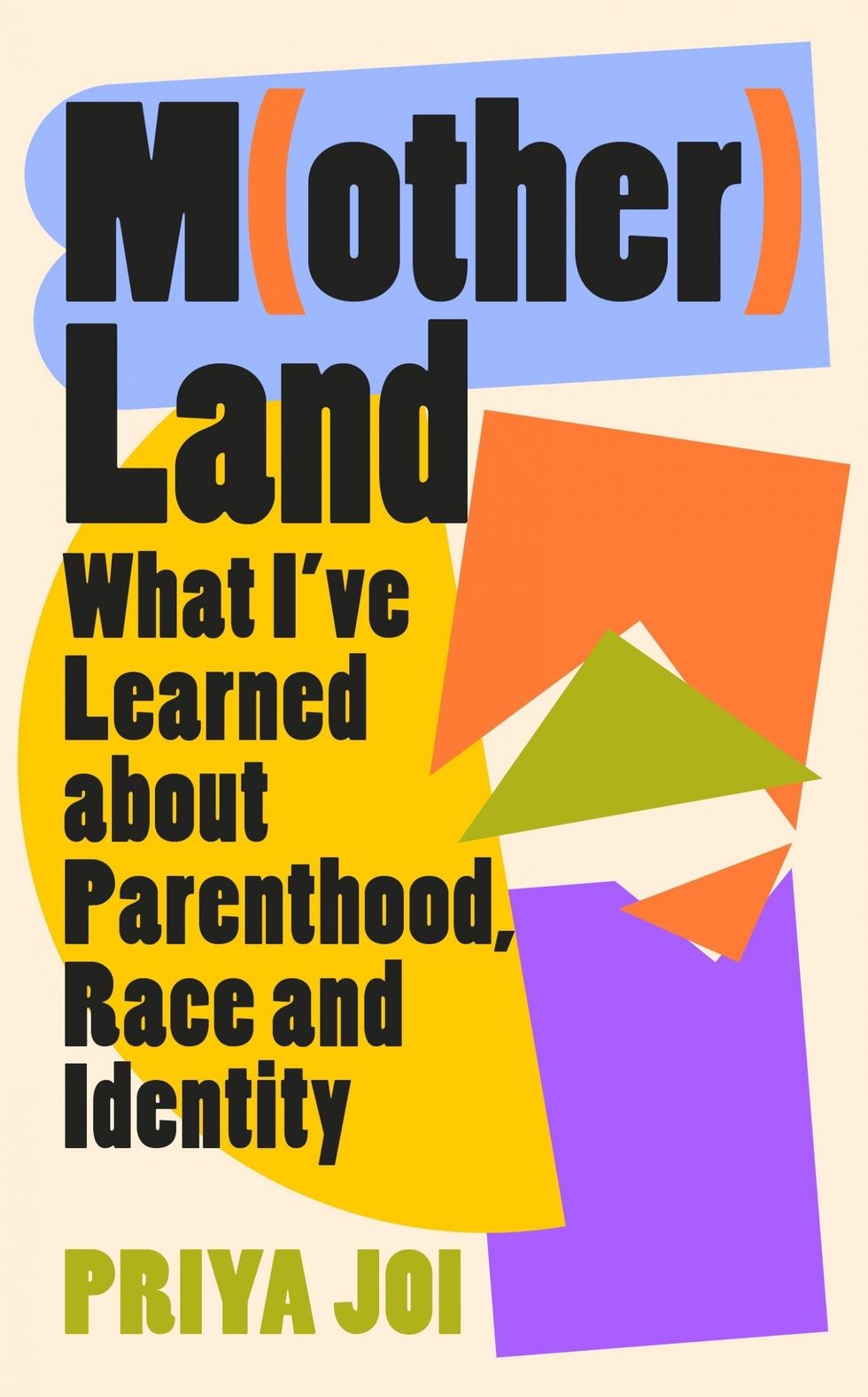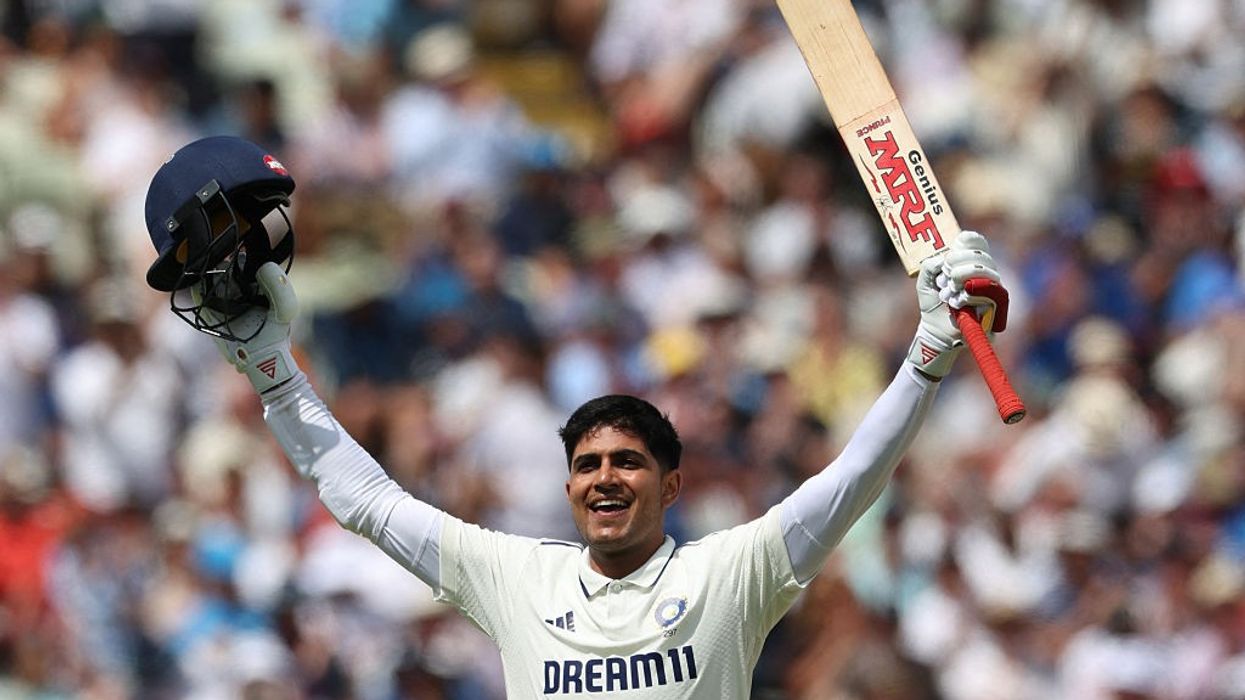AS SOMEONE who didn’t actively want children, Priya Joi came around to the idea after her biological clock started to ring the alarm. She read loads of books on motherhood, but they were either amusing anecdotes about stressed mothers dreaming about an uninterrupted glass of wine in the bath, or guidebooks for dummy mummies.
A dearth of meaningful or relatable books on motherhood, including ones written by women of colour, inspired her to write her own. The well-respected science journalist of 20 years used her own skills with words to write her debut book M(other) land: What I’ve Learnt about Parenthood, Race, and Identity, where she shares her own story.
The powerful, witty response to the absence of an inclusive, accessible blueprint for navigating life as a multi-faceted mother, offers hard won knowledge to anyone trying to navigate the complexities of race and motherhood. Eastern Eye caught up with the author to discuss her multi-faceted book, which has received a great response, key messages she wants to convey, and what she learned writing it. She also spoke about parenthood, and how to speak to children about race and identity.

Tell us about your book M(other)land: What I’ve Learnt about Parenthood, Race and Identity?
It’s the story of my childhood growing up across India and UK, how I reconciled my own fluctuating identity across different cultures, and how I’m helping my young daughter shape hers.
Who are you hoping connects with this book?
This is for anyone who has questioned whether they’re cut out to be a parent or felt like they don’t know what they’re doing raising their child, wishing there was a blueprint to get it right. It’s also for anyone who has ever felt ‘other’ in their own childhood; like they didn’t quite fit in, and how to reconcile that in adulthood.
What was the biggest challenge of writing this book?
Time. The dream of getting a publishing deal, then sitting with your thoughts and fine wine in a cabin with a view couldn’t be further from the truth. I still had to meet work deadlines, deal with the school runs, homework, and afterschool classes.
Did you learn anything about yourself while writing this book?
Absolutely. We all know the advice when dealing with issues, that writing things down can be cathartic, and it really does help. I’d find myself writing about things I’d always just accepted – like, I went to live with my grandparents in India when I was a child while the rest of my family stayed in Britain. But when you write that down, you have to explain to the reader why, and that opens up further questions you never really thought to ask yourself. Writing this has certainly helped me understand my younger self better and I’m pretty proud of how she coped with things.
Is there a key message you want to convey?
While every mother-daughter relationship is unique, there are certain parenting tips that are golden. In raising my daughter, Leela, I’ve combined the best of Indian culture and fused it with the best of western. Teach her respect, but don’t take cr*p from anyone who disrespects her. Express herself freely but think before she speaks. Have wild ambitions but apply herself to achieve them. Play nicely, act considerately, let her imagination run riot, and don’t feel guilty about shutting the door and having some me time.
How much did your own upbringing affect your approach as a parent?
So many of my parents’ values, such as valuing family, treating older people with respect, and being part of a community are hugely important to me. I try and instil them in my own daughter.
What advice would you give parents trying to speak to their children about race and identity?
I’d suggest making the most of opportunities that arise organically to talk about it, rather than giving kids a lecture. For example, I talked to Leela about the Black Lives Matter movement when it happened, in a way that was age appropriate. Expose them to dark-skinned icons and characters from an early age as this stuff really does filter through to them. Though it can be hard, I do explain to my kid that people might treat her differently because of her colour.
Do we essentially turn into our own parents in some ways?
I think we do to an extent, probably more than we’d like to admit. We realise that as parents, we’re only human and don’t know the future any more than anyone else, yet we must act decisively and with certainty when we have kids.
Is there a part of the book that is a particular favourite with you?
The conversation with my mum about sending me to India as a baby – it’s raw and vulnerable yet beautiful in its honesty.
How much do the positive reviews mean to you?
To hear from other well-respected mothers of colour like Nadiya Hussain that it’s the kind of book she wishes she had access to as a young mum meant the world because stories like this are so rarely showcased, even though there are millions of brown and Black immigrants to predominantly white countries.
What kind of books do you enjoy reading?
I mostly read a mix of popular science books, thrillers and sci-fi.
What can we expect next from you?
I’m a science writer by profession, so I’m thinking of writing something health related.
What inspires you?
Honesty. People who are able to cross-examine their own lives and offer up truths about themselves inspire me.
Why should we pick up your new book?
It’s a look at parenting as a person of colour that is a rarely told story, even though there are so many second and third generation immigrants in the UK and the US. Our stories are important and I’m glad I got to share mine.
M(other)land: What I’ve Learnt about Parenthood, Race and Identity by Priya Joi is available now (Penguin Life, £16.99)

















